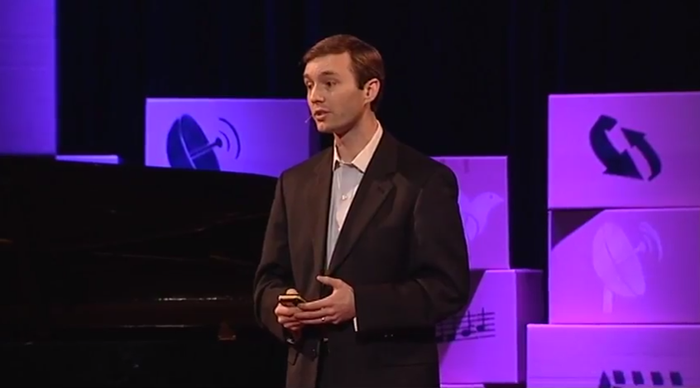
The technology of blockchain can help in the fight against corruption. In some countries it has already been used in a test mode at the state level.
In countries where everyone can change public records in the state register, if they pay, who needs, corruption is an acute problem. Its solution can become a technology, which, incidentally, has already been successfully applied in Georgia. In its block system, almost 200,000 records of rights to land are stored, and on the one hand it is reliably protected from unauthorized access, and on the other - anyone can view all these records. This is the first case of using a decentralized network in the civil service.
The project helped to develop the Accelerator Blockchain Trust Accelerator. His co-founder, Tomika Tillemann, previously worked at the US State Department and wrote a speech by Hillary Clinton about Internet freedom (for this he had to work 100 hours without sleep).
Tillemane believes that the blockchain helps to preserve the integrity of public data, be it information about landowners or the number of votes in the elections.
"Now the society hardly trusts the government," he said. "The technology of blockchain allows to solve this problem, because it provides reliable and open systems that can not affect corruption."
According to the sociological survey of Edelman, in 2017 people's trust in state institutions decreased. Residents of half of the 28 countries that participated in the survey admitted that they least of all trust their government.
Blockchain technology is a system of decentralized registries consisting of "blocks" of data, for example, about bitcoin transactions. All information is stored simultaneously on several computers in a single network. Access to these records is almost impossible - if only with the permission of all network members and with stringent restrictions. That is why such a system is perfectly protected from corruption.
Blockchain called the "missing link in the Internet" or "machines of trust." The possibilities of its application are very wide . A vivid example international money transfers without commissions, And this technology could turn the whole system of the carsheringa https://www.fastcompany.com/40429311/how-the-blockchain-could-usher-in-a-future-of-shared-mobility.
In Georgia, there was a need for such a system back in the chaotic post-Soviet times, when officials were often accused of manipulating records in the state register. Now the government of the country has managed to clear its reputation, and Tillemane believes that this is only the beginning. The project of the cadastral map on the blockchainse was a pilot, following this government of Georgia, the transitions to this technology and other registries and services.

In addition, the accelerator has another project - TechSoup, which is a unified technology network for international charities. In March, the company announced the creation of a blockchain registry for non-governmental organizations operating in countries where such organizations are under state supervision.
Recalling his work in the US State Department, Tillemann notes that everything often stems from a lack of basic technology. "The spoiled system does not allow [foreign] leaders to do anything good," he said. "It's very difficult to make the changes people want when there are so many opportunities for fraud and corruption in the system. All this led to the fact that we were thinking about the use of blockchain. "
In this mode, billions of dollars are being invested, mainly in financial services. Tillemann believes that the blockchain is worth it, but still it should not only benefit the bankers. Billions are invested in financial technologies, but it seems to me that it is more important to direct them to improve the situation, the work of the government and the satisfaction of the needs of the people, "he said.
Thank you all, join in the my followers, will be many more interesting articles!
States weren't created for trust. They were created for people to have a false sense of security.
Thank you for your vote in my post very grateful.